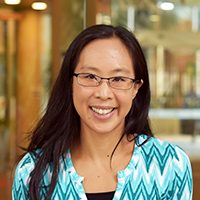Associate Professor
Jessica Mar
Why bulk samples (still) matter for gene expression analysis.
For beginner bioinformaticians, you may be inclined to believe that all RNA-sequencing now revolves around single cells. While advances in single-cell next-generation sequencing technologies have created new opportunities for computational biology, it is useful to recognize that the equivalent data sets generated from bulk samples still have their place for bioinformatics and for understanding biology. This talk outlines some of the reasons why bioinformaticians still need to pay attention to bulk RNA-sequencing data sets and in particular, why beginners should learn how to analyze gene expression data at both bulk and single-cell resolution.
Workshop: Gene-expression analysis with RNA sequence data using R
Presented with Dr Atefeh Taherian Fard and Huiwen Zheng, Australian Institute for Bioengineering and Nanotechnology, The University Of Queensland
In this workshop, you will learn how to analyse and explore RNA-seq count data. This hands-on workshop will cover basic steps in gene expression data analysis, including quality assessment, normalisation, differential gene expression testing, pathway over-representation analysis and visualisation. By the end of this workshop, you will be able to utilise the analysis workflow for your own RNA-seq data
Keywords: R, RStudio, RNA-seq, differential expression; data visualisation, DESeq2 and pathway analysis
Requirements: Participants must bring their own laptop and make sure that it has the latest version of R and RStudio installed. Experience in using R and RStudio is desired but not required
Relevance: This workshop is relevant to anyone who is interested in learning how to present RNA-seq data in an informative and engaging way, or applying different statistical methods, to understand the data and interpret the result using R.

Associate Professor Jessica Mar
Australian Institute for Bioengineering and Nanotechnology, The University Of Queensland
Associate Professor Jessica Mar is a Group Leader at the Australian Institute for Bioengineering and Nanotechnology at The University of Queensland in Brisbane. The Mar group focuses on understanding variability in the transcriptome and how this informs regulation of cell phenotypes. Jess received her PhD in Biostatistics from Harvard University in 2008. She was a postdoctoral fellow at the Dana-Farber Cancer Institute in Boston (2008-2011), and an Assistant Professor at Albert Einstein College of Medicine in New York (2011-2018). Having only just relocated back to Australia as an ARC Future Fellow in July 2018, a major focus of her work is on modelling the aging process using single cell bioinformatics. Jess has received several awards, including a Fulbright scholarship (2003), the Metcalf Prize for Stem Cell Research from the National Stem Cell Foundation of Australia (2017), and the LaDonne H. Shulman Award for Teaching Excellence (2017) from Albert Einstein College of Medicine.
